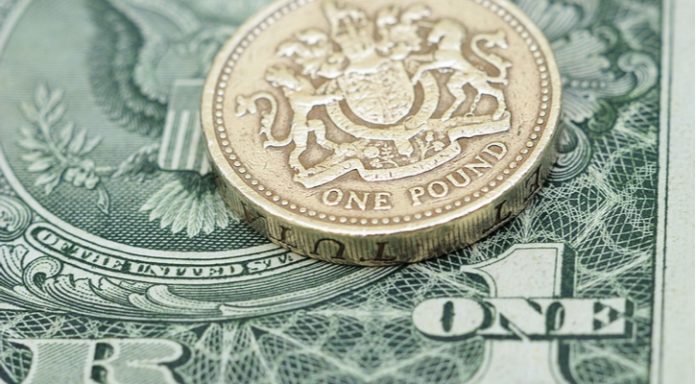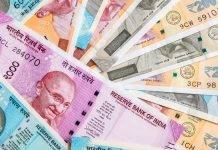Brexit hopes and strong US private payroll figures drove trading in the pound US dollar exchange rate on Wednesday. The Pound rallied versus the dollar to a high of US$1.2856, before easing back towards the close.
| What do these figures mean? |
|---|
|
When measuring the value of a pair of currencies, one set equals 1 unit and the other shows the current equivalent. As the market moves, the amount will vary from minute to minute. For example, it could be written: 1 GBP = 1.28934 USD Here, £1 is equivalent to approximately $1.29. This specifically measures the pound’s worth against the dollar. If the US dollar amount increases in this pairing, it’s positive for the pound. Or, if you were looking at it the other way around: 1 USD = 0.77786 GBP In this example, $1 is equivalent to approximately £0.78. This measures the US dollar’s worth versus the British pound. If the sterling number gets larger, it’s good news for the dollar. |
Brexit optimism sent the pound charging upwards in the previous session. Comment by UK Brexit secretary Dominic Raab saying that the end of Brexit was in sight, was sufficient to increase demand for the pound. Dominic Raab said that he saw a deal being completed by 21st November. This would confirm that the UK is hoping to finalise a deal at a special European Council meeting mid-November. According to this timetable, UK Prime Minister Theresa May would be able to seek approval from MP’s before the end of the year.
This is by no means the first time that pound investors have had their hopes raised over a deal being in sight. However, this is the first time that a date has been agreed by both sides, giving an air of authority to Dominic Raab’s claims. Should a deal be agreed, the UK would be on course for a softer, orderly Brexit. This is considered to be less damaging to the economy than a hard Brexit.
| Why is a “soft” Brexit better for sterling than a “hard” Brexit? |
|---|
| A soft Brexit implies anything less than UK’s complete withdrawal from the EU. For example, it could mean the UK retains some form of membership to the European Union single market in exchange for some free movement of people, i.e. immigration. This is considered more positive than a “hard” Brexit, which is a full severance from the EU. The reason “soft” is considered more pound-friendly is because the economic impact would be lower. If there is less negative impact on the economy, foreign investors will continue to invest in the UK. As investment requires local currency, this increased demand for the pound then boosts its value. |
Reports that a deal has been struck regarding UK financial services also boosted the pound. The deal will allow UK financial services firms to continue to operate in the EU as they do now. Given the importance of the UK financial services industry for the UK economy, this is excellent news.
Dollar Strong on Solid ADP Data
The dollar was also in demand on Wednesday, albeit less so than the pound. Data showed that the private US jobs market remains healthy. ADP payroll data showed 227,000 jobs were created in October, significantly higher than the 187,000 that analysts had predicted. A strong private sector jobs reading is often a good indication that Friday’s US jobs report will be strong.
Today the focus will remain on the US economic calendar with investors looking towards the US manufacturing figures. Analysts are expecting the The Institute for Supply Management (ISM) Manufacturing Purchasing Managers Index (PMI) to have slipped to 59 in October, down from 59.8. A weaker reading could weigh on the mood for the dollar.
| Why does poor economic data drag on a country’s currency? |
|---|
| Slowing economic indicators point to a slowing economy. Weak economies have weaker currencies because institutions look to reduce investments in countries where growth prospects are low and then transfer money to countries with higher growth prospects. These institutions sell out of their investment and the local currency, thus increasing supply of the currency and pushing down the money’s worth. So, when a country or region has poor economic news, the value of the currency tends to fall. |
This publication is provided for general information purposes only and is not intended to cover every aspect of the topics with which it deals. It is not intended to amount to advice on which you should rely. You must obtain professional or specialist advice before taking, or refraining from, any action on the basis of the content in this publication. The information in this publication does not constitute legal, tax or other professional advice from TransferWise Inc., Currency Live or its affiliates. Prior results do not guarantee a similar outcome. We make no representations, warranties or guarantees, whether express or implied, that the content in the publication is accurate, complete or up to date. Consult our risk warning page for more details.
This article was initially published on TransferWise.com from the same author. The content at Currency Live is the sole opinion of the authors and in no way reflects the views of TransferWise Inc.





